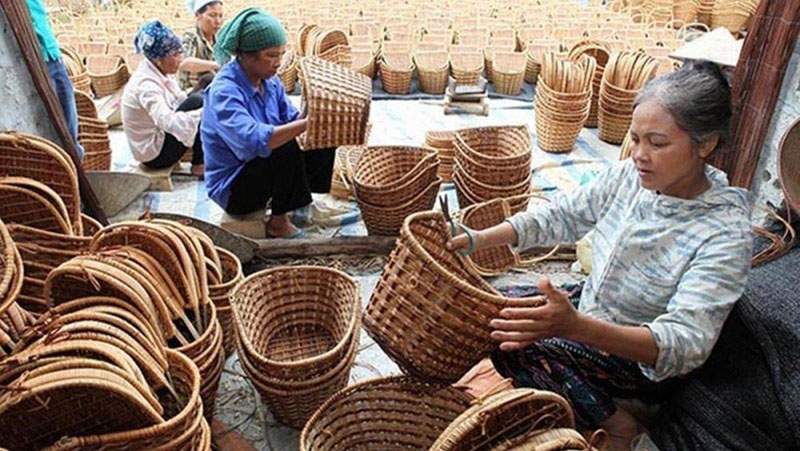


Rural development remains unstable
The Deputy PM stated that Vietnamese rural areas have seen visible changes with improvements to infrastructure and the living standards of the people after the 10-year implementation of the Resolution of the seventh session of the 10th National Congress of the Party, the eight-year implementation of the National Target Programme on building new-style rural areas and the five-year implementation of the programme on agricultural restructuring.
So far, approximately 3,420 communes (38.32%) nationwide have been recognised as meeting the standards set for new-style rural areas. However, besides the achievements, the building of new-style rural areas and poverty reduction reveal considerable disparities between areas, while the potential and advantages of localities have yet to be fully tapped.
One of the main reasons for the inadequacies is that localities have yet to identify their main products with competitive advantages, the shortcomings of trade promotion activities, a high proportion of small-scaled production models and untrained labourers, as well as low labour productivity in rural areas, among others.

The OCOP intends to develop the rural economy and build new-style rural areas.
Projects in support of agricultural production mainly depend on the State budget and external funding sources, while lacking links between firms, scientists and farmers.
In particular, after the completion of support projects, local farmers often lack the knowledge, skills and capital to continue to develop established production models in a sustainable manner. Rural economy also shows uneven development associated with environmental pollution, the movement of young labourers to urban areas, and others.
Applying international experience to Vietnam
Vietnam can study and apply the OCOP programme which has been successfully implemented in Japan since 1979. Through the OVOP, special attention is paid to socio-economic development in rural areas based on internal strength and available resources in addition to increasing the added value on local products.
Quang Ninh province was the first province in Vietnam to implement the OVOP programme in 2013, which has proved effective after three years. So far, more than 30 localities across the country have carried out the programme on a different scale which has helped to create thousands of commercial products.
Key groups of solutions
Deputy PM Vuong Dinh Hue pointed out six groups of solutions to promote the effectiveness of the OCOP programme in order to fuel the rural economy.
He stated the necessity of raising public awareness of the significance of the OCOP programme to motivate farmers and firms to develop products of local advantages. It is also advisable to develop diverse types of high-quality products and services which will be rated under OCOP standards.